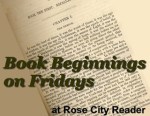 It took me a while to get to this one, but I am very pleased to be back in the Stephen King universe. Salem’s Lot is classic horror. King doesn’t get everything right (and this was published in 1975), but there’s not much question that he’s a supremely great writer. His stories are very easy to take in and get lost in. I enjoyed this very much, and I’ll keep working my way through his extensive catalog.
It took me a while to get to this one, but I am very pleased to be back in the Stephen King universe. Salem’s Lot is classic horror. King doesn’t get everything right (and this was published in 1975), but there’s not much question that he’s a supremely great writer. His stories are very easy to take in and get lost in. I enjoyed this very much, and I’ll keep working my way through his extensive catalog.
I won’t spend too much time on plot; you can find that elsewhere. My audio version opens with a short foreword or introduction which King reads himself, and it made me feel so good about what I was headed into. In his own voice, I heard the style and easy sentences of a master, and heard him discussing reading and writing as lifetime loves. He describes reading Dracula as a young boy, and then a bunch of secondhand E.C. Comics, and reimagining the vampire story for a contemporary U.S. of A. He confesses that Salem’s Lot, only his second novel, is dated, but he still counts it among his favorites. “Carrie, the book which came before it, seems almost fey by comparison. There is more confidence here, more willingness to be funny.” It only made me more excited about the story to come. Ron McLarty reads the novel itself, and very well I think: I have no comment on his reading either way, which is a good sign.
In Salem’s Lot, the moderately successful novelist Ben Mears returns to the Maine town where he spent just a few years as a boy, but where he had an indelibly frightening experience in a moody old mansion where a famous recluse had hung himself. He meets a nice girl, and settles in to a room in a boarding house to work on a spooky fourth novel. To a mild, idyllic backdrop, Ben courts the girl, Susan Norton, and makes new friends. But the town of Jerusalem’s Lot (or Salem’s Lot, or simply The Lot) isn’t done with mysterious, creepy figures. Ben’s not the only newcomer in town. A beloved dog is found impaled on a cemetery fence. Two young brothers disappear in the night, and one death follows another. A small but tough motley crew forms up: Ben, the writer; Susan, the young woman; Matt, an aging high school English teacher; Mark, a middle-school boy new to town; Father Callahan, the town’s Catholic priest, who will figure in the Dark Tower series; and Dr. Jimmy Cody. Together they will fight an ancient evil. The novel’s prologue serves as a teaser, with an unnamed man and boy on a cross-country trip. This action actually falls chronologically at the end of the book, just before its epilogue–sending me immediately back to the beginning when I finished listening to it.
King absolutely excels at realism, exquisite detail, and a combination of quaint small-town living (as sordid as sweet, but very true to life) with horror. He’s got a social conscience perhaps ahead of his time. His characters feel accurate, and everything flows very naturally; his sentences are that very special kind of smooth and easy that appears effortless but is actually extremely rare and difficult to achieve. It’s masterful and I’m a little bit in awe. On the other hand, there was one element that got under my skin. To protect plot spoilers, I’ll discuss it here briefly in white text (highlight to read): I really liked Susan Norton’s character, and was invested in her development not only as character but as strong young woman coming into control of her own destiny. She was the first of our powerful little team to fall to the big bad vampire, and I quite resented how that worked; after I’d come to see her as a proper strong woman and major player, it felt like she got thrown away like the cheap girl character in a pulpy horror story. Jimmy Cody later falls, too, but I was left with the sense that Susan didn’t get the treatment she deserved. I was left with the taste of misogyny in my mouth and felt sad about it. I respect Stephen King’s efforts, and find him better (in the lyrics of the Drive-By Truckers, who were talking about somebody entirely different) “at worst, no worse than most white men of his generation, north or south”… but it still made me sad. I’ll also recall again that in his introduction he acknowledged that this novel is dated. I hope this is part of what he meant, and that we’re still getting better now.
This issue, for me, was worth noting but did not fatally poison the experience. It’s an outstanding horror novel, and it’s sticking with me, and King is a marvel. I sort of want to go back and read the entire Dark Tower series over again (ha), but there’s so much more King out there, too. I do recommend. There’s not much perfect in this world.
Filed under: book reviews | Tagged: audio, horror, Stephen King | Leave a comment »














